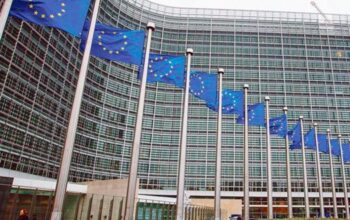The government of Republika Srpska presented its 11th report to the United Nations Security Council today. The report advises the Council on the entity’s positions on a range of issues relevant to the international community’s involvement in BiH, and summarizes the progress the RS has made in several areas. The executive summary of the report is below.
Introduction and Executive Summary
Republika Srpska (RS), a party to all of the annexes that comprise the Dayton Accords, respectfully submits this 11th Report to the UN Security Council, which outlines the RS Government’s views on key issues facing Bosnia and Herzegovina (BiH). The RS’s principal goal remains the improvement of economic conditions for its citizens. Consistent with that goal, the RS is reforming its laws and regulations to promote economic growth and fight corruption, seeking reforms of BiH-level institutions, insisting on respect for BiH’s constitutional structure, and calling for an end to the High Representative’s harmful interference with domestic politics. The RS reaffirms its ten previous reports to the Security Council. It thanks states and their representatives for taking this and earlier reports into account as they consider the situation in BiH.
I. Economic growth
Section I describes the variety of ways in which the RS is taking action to boost economic growth. The RS continues to reform its laws and regulations to improve its environment for job- creating investments and businesses. In December, for example, the RS inaugurated a new one- stop shopping system for business registration, which drastically cuts the time, procedures and expense of opening a business. The RS is also encouraging economic growth by continuing to align its laws and regulations with EU standards. BiH’s progress toward EU membership has, unfortunately, stalled because of disagreements within BiH’s other entity, the Federation of Bosnia and Herzegovina (FBiH), over the establishment of a coordination mechanism for EU integration and the implementation of a verdict of the European Court on Human Rights. BiH has also failed to enact urgent, EU-supported legislation to amend the BiH residency law because of a Bosniak political party’s obstructions. Another way the RS is promoting economic growth is by intensifying its fight against corruption, including through its recent approval of a new four- year Anticorruption Strategy.
II. Reform of BiH-level institutions
Section II addresses the need for significant reforms of BiH-level institutions. Though the EU’s Structured Dialogue on Justice has helped illuminate areas in which the BiH justice system requires reform, BiH-level institutions are stubbornly resisting change. As explained in Section II and the four attachments to this report, reforms are necessary to: (1) stop abuses by the BiH Prosecutor’s Office, including ethnic discrimination in war crimes cases; (2) put an end to the Court of BiH’s arbitrary, and sometimes lawless, assertion of jurisdiction over entity criminal cases; (3) implement the European Court of Human Rights’ ruling in Maktouf v. BiH; (4) improve BiH’s system for appointing judges and prosecutors; and (5) bring transparency to secretive BiH judicial institutions. Section II also explains the need for an examination of BiH- level institutions, many of which were unlawfully imposed by the High Representative, violate the BiH Constitution’s allocation of governmental competencies, duplicate functions performed by entities and cantons, and waste money. Finally, Section II discusses the need for anti- corruption programs.
III. Respecting the Dayton structure of BiH
Section III explains the importance of respecting the structure of BiH established in the BiH Constitution, which is an integral part of the Dayton Accords. The constitutional mechanisms to protect each of BiH’s Constituent Peoples are vital to the country’s stability. The Constitution’s strict limits on the BiH level’s competencies are essential to the country’s proper functioning, but they were disregarded as the High Representative centralized many competencies in Sarajevo. The frequent deadlocks that characterize the BiH level today would be much less likely if the BiH level limited its governance to its constitutional competence. The BiH Constitution is also important because its federal structure enables entities to enact reforms and other policy innovations that would have been impossible to develop the consensus for at the BiH level. Particularly in countries in which political preferences vary widely by region, decentralization boosts efficiency and economic development.
IV. What is the result of foreign funding of and intervention into domestic political activities?
Section IV examines the damaging effects of interference by the High Representative and others into domestic politics in BiH. The High Representative and other foreign diplomats embraced this year’s street protests against BiH, FBiH, and cantonal institutions as examples of representative democracy—even after the demonstrations turned violent—while at the same time attacking and delegitimizing officials chosen in free and fair elections. The High Representative also continues to undermine efforts to negotiate compromise solutions to political disputes.
V. The Security Council should end the application of Chapter VII, which has no factual or legal basis.
The situation in BiH in no way warrants the determination required for the UN Security Council to act under Chapter VII of the UN Charter: that there exists a “threat to the peace, breach of the peace, or act of aggression.” The Security Council’s own resolutions have repeatedly acknowledged the “calm and stable” situation in BiH. After more than 18 years of peace in BiH, there is simply no justification for the UN Security Council to continue acting under Chapter VII.


